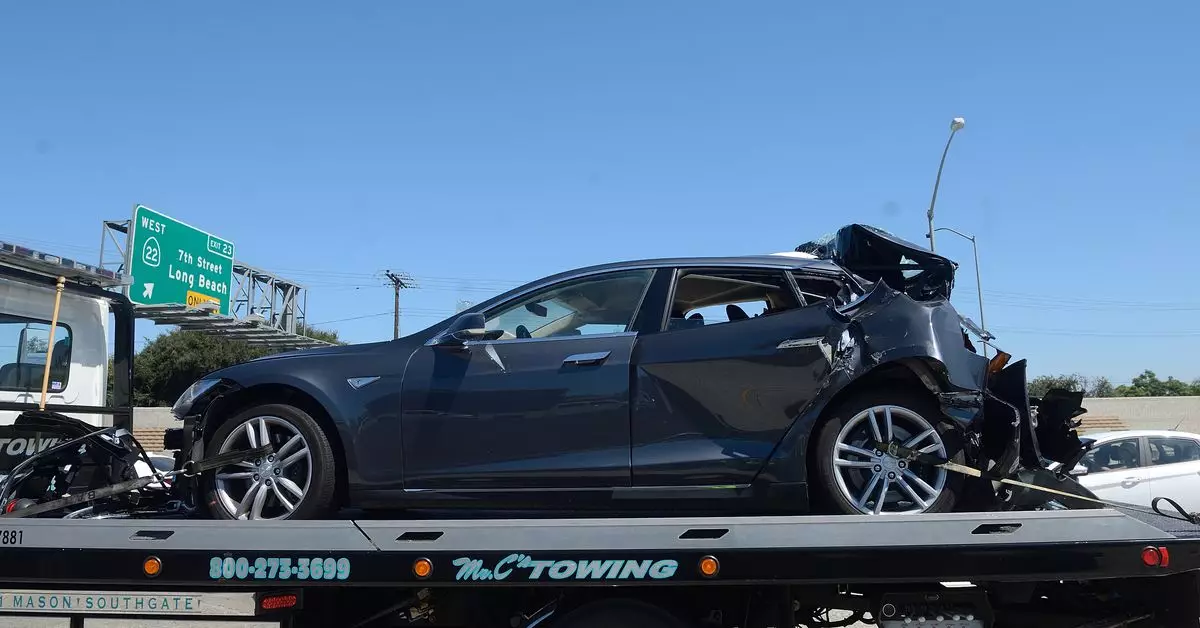With a shift in political leadership, the future of autonomous vehicle regulations stands on unsteady ground. Recent reports highlight that Donald Trump’s transition team aims to revoke a critical Biden-era rule mandating that automakers and technology firms disclose accidents involving fully or partially autonomous vehicles. This potential rollback raises significant questions, particularly regarding the transparency and safety of emerging driving technologies.
The current framework, established by the National Highway Traffic Safety Administration (NHTSA) in 2021, required companies to report crashes involving their automated driving systems within a short time frame after an incident. The overarching intention was to foster transparency about the safety of technologies that are steadily reshaping the transport landscape. However, the implications of such policies extend well beyond the mechanics of governance; they touch on how different automakers and their technologies are scrutinized and brought to market.
Tesla, the front-runner in the electric vehicle arena, faces unique challenges under the current regulations. While the company has positioned itself as an innovator, the mandatory reporting of accidents has cast a shadow on its reputation. Since the implementation of the standing general order, Tesla reported more than 1,500 crashes, accounting for a notable proportion of recorded incidents across the industry. This rhetoric surrounding data transparency brings to light an essential dichotomy: while there is a need for oversight to ensure safety, excessive scrutiny could stymie innovation.
Moreover, the troubling data regarding fatal accidents reveals that Tesla is associated with around 40 out of the 45 reported fatalities in 2023 linked to NHTSA investigations. Critics argue that such figures do not solely reflect the technology’s failings; Tesla’s market dominance with Level 2 driver-assist systems means that it simply has more vehicles on the road and, consequently, more opportunities for accidents to occur. This imbalance begs the question: are these regulations equally applicable to all players in the field?
The Business Implications of Reporting Rules
For Tesla, the implications of these reporting requirements could dent its competitive edge. The company’s apparent dissatisfaction with the current regulations suggests a broader concern among automotive manufacturers regarding transparency and liability. With investigations from NHTSA weighing on the firm, stakeholders may find themselves questioning both the safety of autonomous technologies and the business viability of such innovations.
In this landscape ripe for technological advancement, Trump’s administration is poised to push for a significant deregulatory agenda that could favor companies like Tesla. With Elon Musk directly involved in lobbying efforts to reshape how autonomous vehicles are regulated, we could see a rapid easing of restrictions in favor of experimentation and, potentially, mass production of fully autonomous vehicles. The proposed launch of Tesla’s robotaxi service in 2026 underscores this ambition.
The political backdrop is vital in assessing the future of autonomous vehicle technologies. Under Trump’s administration, there could be a concerted effort to dismantle certain policies that are perceived as hindrances to innovation. The potential elimination of EV subsidies, coupled with the repeal of crash reporting mandates, could pivot the narrative of safety towards a narrative of economic advantage.
Moreover, while Musk’s significant financial backing of Trump is noteworthy, his influence may extend beyond political support. Musk’s position as head of the Department of Government Efficiency could enable him to push for streamlined processes that favor Tesla’s operations. However, should these changes occur without sufficient safety measures, consumers might be left exposed in an ever-evolving landscape of automated technology.
The discourse surrounding autonomous vehicle regulations highlights a critical intersection between innovation, safety, and politics. As the Trump administration considers scrapping vehicle crash reporting rules and modifying policies that impact EV production, the outcomes could profoundly affect not only Tesla but the entire automotive industry. If mishandled, the result could be a harrowing dance between advancement and accountability—one that demands careful navigation in a sector that is redefining the very nature of transportation. As stakeholders watch closely, the coming months will be crucial in determining how these regulations evolve and what impact they will have on consumer safety and technological innovation.

